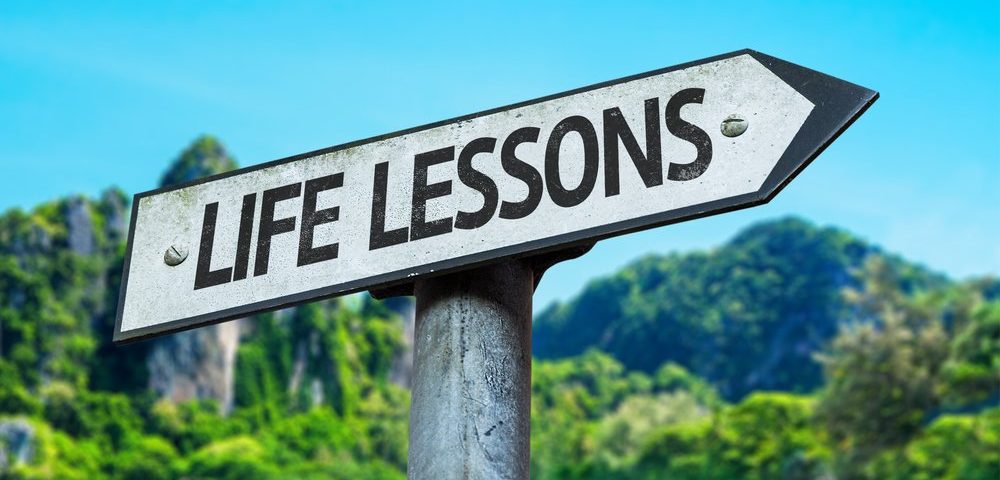What I Learned About Parenting from My Mother’s Health Journey
Written by |

I don’t have children yet, but like most people, I learned nearly everything I know about parenting from my parents.
I grew up watching them and learning from them. I have taken note of their good strategies and of the things I might do differently with my kids. My husband and I will mash together our experiences of having been parented and morph them into our own version of parenting someday.
However, being a caregiver for my mom, Holly, immediately before and after her double-lung transplant gave me unique insight into caring for another person. My dad, Ed, and Aunt Shari were also part of the care team. We worked together to carry out responsibilities both related to and separate from my mom’s immediate care.
While my mom was in the ICU, I took on the role of secretary. I sent out detailed updates to a small group of trusted family members and friends, and more general updates to others who wanted to stay informed. I was also in charge of checking my mom’s phone and email messages. I canceled appointments, made sure pharmacies stopped delivery of her medications back home, and arranged lodging for us, with Aunt Shari’s help.
Normally a passive conversationalist, I had no trouble finding my voice to ask questions and make sure I understood what was going on with my mom’s care. I also made myself a part of her routine, holding her hand on walks, helping nurses untangle lines, carrying chest tube atria or the telemetry box, or pushing a wheelchair behind her. It helped me feel like I had some control and was helping my mom in some way. It also helped me become more assertive in general, which will definitely serve me well as a parent.
After three months in the ICU, plus the extreme physical assault of lung transplant surgery, my mom was very weak. She was weak going into the hospital due to prolonged oxygen deprivation, and all the strength that she had recovered from physical therapy was wiped out on the operating table.
Post-operative aid included everything from getting into and out of bed, navigating our flat with a walker, getting dressed, using the bathroom, and showering. We also prepared transplant team-approved meals, disinfected surfaces daily, sorted medications, and checked dressings. We had to help my mom check her vital signs twice daily, wrap her legs to relieve swelling, and take her to appointments, which are numerous in the first few months after transplant.
Physically helping my mom and running the office, so to speak, were not particularly difficult responsibilities to handle. The more difficult tasks of caregiving were the ones that had an emotional cost, as I expect parenting will have. Things like giving my mom pep talks when she wanted to give up or watching her be in pain and afraid, and being unable to soothe those feelings.
For about a week after my mom was readmitted to treat complications, she was on medications that changed her mental state. During this time, I had to explain things that she didn’t understand or remember, plus deal with mood swings. It was out of character for her and a bit alarming, at times. I don’t take any of it personally, of course, but there were definitely some “WTF” moments. I had to ask my support people to remind me that it was the drugs talking and that her altered mental state was not permanent.
Caring for my mom along the roller coaster ride of lung transplant taught me a lot about parenting that I feel most new parents don’t have the opportunity to experience beforehand. I got to feel the weight of responsibility for caring for someone with a weak body and a compromised immune system. It smashed any reservations that may have existed about physically caring for another person.
Like adults on narcotics, babies and young children can be irrational and emotional. They often don’t understand the reasoning behind rules or the decisions being made on their behalf. I experienced that briefly in the hospital and had to learn to take it with a healthy dose of perspective.
Even more than the drug-related experiences, I got to feel the simultaneous helpless heartbreak and defiant courage of watching a person I love go through a range of negative experiences and emotions. The ability to find the strength to support a person going through a hard time when I also felt like crumbling is the ultimate lesson that I hope to carry into parenthood someday.
***
Note: Pulmonary Fibrosis News is strictly a news and information website about the disease. It does not provide medical advice, diagnosis, or treatment. This content is not intended to be a substitute for professional medical advice, diagnosis, or treatment. Always seek the advice of your physician or other qualified health provider with any questions you may have regarding a medical condition. Never disregard professional medical advice or delay in seeking it because of something you have read on this website. The opinions expressed in this column are not those of Pulmonary Fibrosis News or its parent company, Bionews Services, and are intended to spark discussion about issues pertaining to pulmonary fibrosis.






Leave a comment
Fill in the required fields to post. Your email address will not be published.